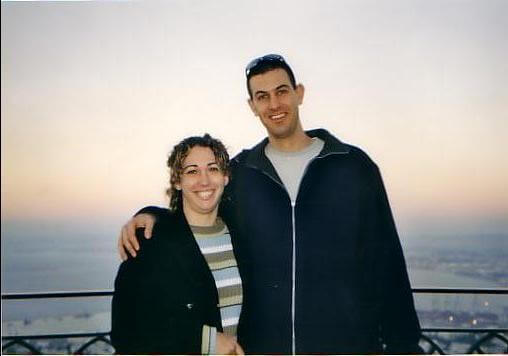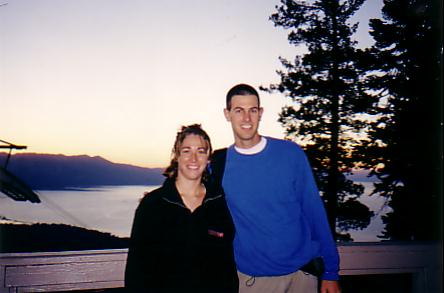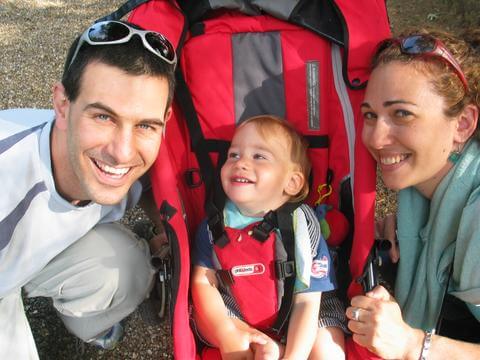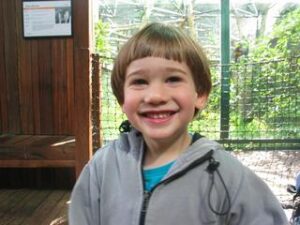
Hi, I’m Dana, started my journey 15 years ago not knowing where to start, overwhelmed and not knowing what to do.
I always wanted a family of my own. after getting married both my husband and I travelled to some exotic places until we decided it’s time to settle down.
On the 6th of July 2005, my firstborn Guy made his grand entrance into the world. It was a natural birth in a hospital with no complications. He was the most easy-going baby, he didn’t cry much, I breastfed him and enjoyed his company. I couldn’t get over how wonderful he was and how happy both my husband and I felt. life was perfect both me and my husband lived on cloud 9 for many months.
Mother & baby groups
After a few months, I started taking him to mother-baby groups where we would read and listen to stories and let the babies familiarise themselves with each other. It was then when I first became aware that Guy showed little or no interest in the other babies and while they would crawl around the floor to each other, he just stayed close to me not participating and showing no curiosity at all.
At first, I just put it down to shyness but then it happened repeatedly I knew we had a problem. Although physically he was growing as expected as time went by, it became more obvious that Guy was not reaching all the usual milestones in time like walking, sitting, participating in simple baby games- an indication that the problem lays with his motor and cognitive skills. I took him to see a paediatrician that told us not to worry, he suggested that Guy was a late bloomer and that it’s fine. being new parents we didn’t know any better and had no cause to doubt the words and wisdom of a more qualified in childcare than we were. Despite the paediatrician’s reassuring words, both of us felt that something is not right.

Delayed speech
Guy was a happy child, always smiling but still, he had a very limited vocabulary. He seemed to be able to say the words ‘Nee’ for horse and ‘baa’ for a bus. From what we have been told and what we’ve read about child development, we thought there was no reason to become too alarmed as there is a range of behaviour that can be considered ‘normal’ in children.
looking back, the signs were there but I suppose neither of us wanted to face up the possibility that Guy needed help that was outside our parenting skills. We also noticed that on the rare times that he did crawl across the floor, he dragged one leg and crawled backwards rather than forward. His lack of speech set the alarm bells ringing, Everyone’s children were chattering away but Guy didn’t speak.
Guy had an overall lack of awareness when it came to understanding what constituted acceptable behaviour. When he was two and a half we drove to a shopping centre to buy him a new shirt and a pair of trousers when all of a sudden he took off running very fast and completely ignored our calls for him to stop and come back. Such was the side of the shopping centre crowd he disappeared in a matter of seconds leaving both of us aghast.
We were so frightened for him because we knew he wouldn’t be able to communicate effectively with any adults who might stop him and ask for his name, where we lived or any other useful details. Fortunately, we found him with a security team who told us that he hadn’t wanted to tell them anything.
The staff at the nursery school also became concerned with Guy’s slower than normal development. They told me that he didn’t communicate with other children and that he wouldn’t participate in activities or do what he was asked. I think that he wasn’t very happy and just didn’t want to be there anyway.

The shocking news
With our consent, the school arranged for the team of the local authority to go to the school to assess his condition. When the report then came it shocked us to the core, it said that Guy was well below average for his age being the lowest one per cent of children of child development. Needless to say, neither I nor my husband could accept such a damning conclusion.
Social isolation – what does it mean to be in the spectrum

Guy’s behavioural problems didn’t just affect him either, as they had a direct effect on people whom we had regarded as friends who started to avoid us, saying upsetting things and behaving in an unkind manner. I was concerned but it cut me to the quick, one friend said in a very blunt note tone: “Can’t you see there is a problem with the boy ” Guy was viewed as being destructive at best and stupid at worst.
All parents naturally want the best for the children and are more than happy to hook them up with new and suitable children, but the reality is that if the ‘new’ child does not meet the parent’s criteria of what makes a ‘good playmate’ they will lose interest and move on. – it hurts, especially if your child is different.
It would be great if the parents would accept us and Guy for what we are, but that’s not going to happen not even within the family. We’ve lost count of the number of occasions where our two children haven’t been accepted as equals, with little or no effort made to include them in the play when invited to family gatherings. Consequently, we are very selective when accepting invitations to weddings or birthdays only attending if we can be sure that Guy and his brother will be made welcome.
Nowadays we look back and joke about it, we’ve learned hard way that social rejection comes with the territory but over time it was made more resilient as we know where we stand and we accept the challenges as part of the process.
Little progress made

At age of four, Guy was going nowhere fast. His vocabulary and speech were as bad as ever, with him only being able to utter single words, and even then with difficulty. His sensory interaction was limited even though we had sensory toys and a sensory swing at home. In nursery school, he could barely scribble even with the help of a teaching assistant. He never run around in the playground or use any of the outdoor apparatus they had in the nursery school.
I met a woman whose son displayed similar behaviours to Guy’s, she was willing to share her experiences and knowledge. Every little piece of information harvested was like gold dust as each little nugget helped to shine a light on where we were. I was getting no help from the expected sources in the NHS, we were at our wit end so we decided the only solution was to do something ourselves.
Guy was misunderstood at school and was suffering, I had no other choice than to home school him. I started researching into Guy’s condition and discovered more about child development, autism spectrum and sensory interaction. I wanted as much information about it as I could find. I have tried many therapies and spent precious time and money on the wrong path as it was all a learning curve for me.
I saw very little progress and above all, there was no structure. Every therapist focused on their agenda and no one could help me understand the ‘big picture and where to start. Therapists and those who specialize in learning difficulties will often tell you that their treatment is the best solution for all the issues the child is having however, with so many ‘moving parts’ that statement is blunt. Some therapists even encouraged me to claim disability benefits which I refused of course as I don’t believe it is a disability.
Is autism a disability?
According to the national autistic society, autism is a lifelong developmental disability. I believe that children can grow out of many of the challenges and thrive, I have seen it with my kids and with the families I work with seeing amazing progress in a short period. giving up is not an option for me.
I found the missing piece of the puzzle and becoming a parent coach

That was until I found that there is a blueprint of developmental order, in which some therapies and methods are not beneficial if the child is not ready.
knowing where to start and how to proceed is the key to helping children on the spectrum. following the wrong path will be a waste of time money and effort. I didn’t feel alone anymore and I knew that I must help other children and families struggling with the burden of autism affecting every aspect of normal family life, relationships and communication, frustration, isolation, sleeping problems, digestion issues, anxiety, emotional outbursts and violence.
I spent days and nights discovering and exploring all options to help my boys overcome their difficulties. Today I help parents using my knowledge and my experience, overcoming many developmental challenges and seeing results. I use my knowledge in autism spectrum therapies to transform lives through sensory interaction, reflex integration, and brain balance in a natural way without medication. My coaching is not like any other parenting coaching, as it focuses on the typical issues related to children with their specific struggles and behaviours. I do this by providing expertise and support in all areas of development, sensory interaction, emotional regulation, helping families to live better while helping their kids to fulfil their potential.
Let me help you with your journey I encourage you to learn about me and the ways I can assist and support you in your sensory journey.
I can personally guide you to overcome the hurdles to a more loving, fun, and meaningful family life re-connecting to your child.
Being a parent to a child on the autistic spectrum brings a lot of challenges to young parents, there are many treatments and strategies to help and support your child but which one is the right one, at the right time?
This encouraged me to help other families as a parent coach.
Let me finish off with a quote from Napoleon Hill that inspired me in those difficult moments:
“without persistence, you will be defeated even before you start. with persistence, you will win.”